
GENEVA – United Nations expert Maina Kiai has expressed serious alarm at Egypt’s approval of a draft law which would impose major restrictions on the work of non-governmental organizations (NGOs). Mr. Kiai said that if the bill became law, it would devastate the country’s civil society for generations to come and turn it into a government puppet. The Egyptian Parliament approved the bill on 15 November and sent it to the State Council for review; it will be sent back to the Parliament for a final vote at an unknown date. The government did not hold consultations with civil society on its contents. Mr. Kiai, Special Rapporteur on the rights to freedom of peaceful assembly and of association, said the law appeared to be “deliberately drafted to curtail civil society’s ability to operate, and to stifle their ability to freely express themselves”. The bill’s provisions violated international law and contradicted Egypt’s own constitution, he said. “This bill proposes perhaps the worst restrictions on fundamental freedoms in Egypt since the 2011 uprisings,” Mr. Kiai said. “It aims to destroy Egypt’s foundation for peaceful, civic engagement at its very roots. If it becomes law, it would devastate civil society not only in the short term, but possibly for generations to... Continue reading →

GENEVA - The UN Special Rapporteur on freedom of peaceful assembly and of association, Maina Kiai, warned today about the growing restrictions imposed on civil society in Egypt and the targeting of human rights defenders and human rights organizations. On 17 September 2016, the Cairo Criminal Court froze the assets of five prominent human rights defenders and three NGOs named in “Case 173 on foreign funding”. The order places the frozen assets under government custodianship, meaning that the organizations and individuals can no longer make independent decisions about the confiscated money. “These new developments intervene in a context of a continuing crackdown on human rights defenders and civil society organisations in Egypt since the reopening of the 2011 NGO case, known as the ‘ 173 foreign funding case’, in which a number of human rights defenders and heads of civil society organizations are being investigated,” said Mr. Kiai. “The Government seems to be systematically attacking civil society in an effort to silence its voice,” the human rights expert added. On 8 September, the Egyptian Cabinet approved a new draft NGO law retaining the restrictive provisions in the current NGO law (No. 84/2002). “The draft law also limits NGO work to ‘development and social... Continue reading →
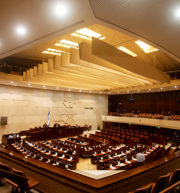
GENEVA – Three United Nations human rights experts today urged Israeli lawmakers not to approve the so called ‘NGO transparency bill’ that would, in effect, target non-governmental organizations that are critical of government policy. The experts expressed grave concern that the legislation would chill the speech of human rights NGOs by subjecting them to harsh penalties for violations and delegitimizing them publicly. The stated aim of the legislation is to increase transparency by requiring NGOs that receive more than half of their funding from foreign government entities to disclose certain information, such as the names of their donors in all publications intended for or made available to the public, or in any written appeal to a public employee or public representative. “The promotion of transparency is indeed desirable and legitimate,” said the UN Special Rapporteur on freedom of expression, David Kaye. “However, the pending legislation has the evident intent of targeting human rights and civil rights organizations, which receive a majority of their funding from foreign government entities, while leaving unaffected other organizations that nonetheless receive a substantial amount of foreign funding from individuals.” The proposed legislation is again before the Knesset, after... Continue reading →

GENEVA – A group of United Nations human rights experts today called on the Chinese authorities to repeal the Law on the Management of Foreign Non-Governmental Organizations’ Activities adopted by the National People’s Congress on 28 April 2016. The Law will enter into force on 1 January 2017. “We fear that the excessively broad and vague provisions, and administrative discretion given to the authorities in regulating the work of foreign NGOs can be wielded as tools to intimidate, and even suppress, dissenting views and opinions in the country,” warned the UN Special Rapporteurs on freedoms of peaceful assembly and association, Maina Kiai; on human rights defenders, Michel Forst; and on freedom of expression, David Kaye. Under the new Law, foreign NGOs are banned from undertaking activities deemed as ‘endangering national unity, national security or ethnic unity or harming China’s national interests and societal public interests…’. “Such broadly crafted restrictions fail to comply with international human rights norms and standards relating to freedom of association and freedom of expression,” the experts stressed. The Law also prohibits foreign NGOs from conducting ‘political activities’ without specifying what such activities entail, hence allowing arbitrary and broad... Continue reading →

GENEVA – The United Nations Special Rapporteur on the rights to freedom of peaceful assembly and of association, Maina Kiai, today warned that Kazakhstan’s Bill amending the Law on Non-profit organizations “may not only compromise the independence of associations, but challenge their very existence.” The draft law establishes an operator with the right to allocate both governmental and non-governmental grants, including grants from international organizations, diplomatic missions or international not-for-profit organizations, to non-governmental organizations. “The possibility for a centralized Government’s operator to distribute all grants irrespective of sources, be it public or private funds, enables the authorities to arbitrarily limit resources and to control the entire not-for-profit sector,” Mr. Kiai cautioned. “By controlling the sources of funds, the draft law would limit associations’ functional autonomy and put their independence and existence at serious risk.” “Access to financial resources is an integral and vital part of the right to freedom of association,” the expert underscored. The new legislative amendments were adopted by the Senate on 8 October 2015. The text would now be with the Lower House of the Parliament for its final consideration and it may be... Continue reading →
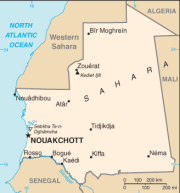
GENEVA – The United Nations Special Rapporteur on the rights to freedom of peaceful assembly and of association, Maina Kiai, today called upon the Mauritanian Parliament to reject the draft law on associations approved by the Council of Ministers last month without public consultations. “While I support Mauritania’s efforts to reform and improve laws that govern the work of civil society, I am concerned that the bill, as it stands, threatens the exercise of fundamental freedoms in the country, in particular the right to freedom of association,” Mr. Kiai said. The human rights expert further voiced particular concern about the lack of civil society consultation ahead of the elaboration of the recently amended draft Law on associations, foundations and networks of associations, which is not in line with international standards. “The Mauritanian Government should view civil society as a key partner in the process of reform.” “Legislation that enshrines mandatory procedures for the ‘prior authorization’ of associations, instead of a simple process of ‘prior notification’, risks hindering the work of civil society in Mauritania,” he said. Instead, Mr. Kiai stated, “a prior notification process that automatically attributes an association the legal personality to function is... Continue reading →
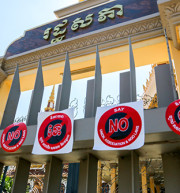
GENEVA – United Nations human rights expert Maina Kiai today called on the Cambodian Senate to reject the draft Law on Associations and Non-Governmental Organisations (LANGO) that “unequivocally threatens the very existence of a free and independent civil society in Cambodia.” The NGO Bill will soon be examined by the Senate, after being approved on Monday 13 July by the Cambodian National Assembly. The Bill was unanimously adopted by the 68 parliamentarians belonging to the ruling party, while the 55 parliamentarians in the opposition boycotted the vote. “Should the draft law be adopted, any group advocating for human rights, basic freedoms and good governance may be shut down and criminalized. It will ultimately have a disastrous impact on Cambodian citizens’ democratic participation in furthering the development of their country,” the Special Rapporteur on the rights to freedom of peaceful assembly and of association warned. “I urge the Senate to reject entirely the Bill as it direly falls short of international human rights norms governing freedom of association, in particular Article 22 of the International Covenant on Civil and Political Rights which Cambodia acceded in 1992,” Mr. Kiai said. The Special Rapporteur highlighted that, under the draft law, associations and NGOs... Continue reading →
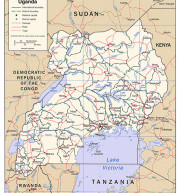
GENEVA – United Nations human rights expert Maina Kiai urged Ugandan legislators to hold meaningful consultations with civil society on a Bill that aims at regulating non-governmental organisations (NGO). A one-day consultation is taking place today in Kampala. “Since the Government of Uganda intends to regulate the framework governing associations, the ostensible beneficiaries of the law should be key partners of the drafting process,” Mr. Kiai said, expressing serious concern that the NGO Bill may not reflect the views of the various interested parties engaged with the consultation process. “I call on the legislators to allow more time for consultation so that all stakeholders have an opportunity to contribute to this important discussion. A day is simply not enough for discussing these weighty issues,” the UN Special Rapporteur on the rights to freedom of peaceful assembly and of association said. The NGO Bill introduced in May and due to be debated in the coming months, seeks to repeal and replace the current Non-Governmental Organisation Registration Act Cap 113 regulating NGO activities in Uganda. “I am concerned about a number of provisions contained therein that severely restrict the right to freedom of association,” the human rights expert stated. “The vague formulation... Continue reading →

GENEVA – United Nations human rights expert Maina Kiai today reiterated his call to the Government of Cambodia to ensure that civil society can meaningfully contribute to the elaboration of the draft Law on Associations and Non-Governmental Organizations (LANGO), which is expected to be adopted by parliament this month. “It is ironic that the drafting of a law regulating civil society in Cambodia excludes civil society from the process,” the UN Special Rapporteur on the rights to freedom of peaceful assembly and of association said, stating that he has “serious concerns about a process that would result in the adoption of the LANGO without meaningful public participation.” Mr. Kiai noted that the development of legislation to regulate civil society associations in the country, which dates back to 2008, has been reportedly shrouded in secrecy. “Relevant stakeholders have told me that the content of the current draft law has not been disclosed and they have been unsuccessful in their attempts to acquire a copy of text,” he said. “Sidestepping the democratic process by leaving out civil society actors and their important contribution from the process, and avoiding international scrutiny of legislation, is not without precedent in Cambodia,” he said, noting that important electoral... Continue reading →
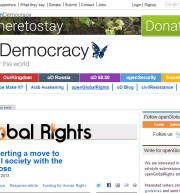
A piece by Maina Kiai has been featured in openGlobalRights, a multi-lingual ezine that covers global human rights. In the article, Kiai discusses legislation introduced in Kenya that would have capped foreign funding to NGOs. The law looked to be a death-knell for a vibrant civil society sector that has long been a shining example for the region. Luckily, after sustained local and international pressure, the legislation was narrowly defeated in the National Assembly in December. Kenya is not out of the woods yet - the legislation may re-emerge next year. But Kiai argues that its experiences could be instructive for countries where civil society faces similar threats. Click here for a link to the piece. Update Jan. 13, 2014: The article is also now available in French.... Continue reading →